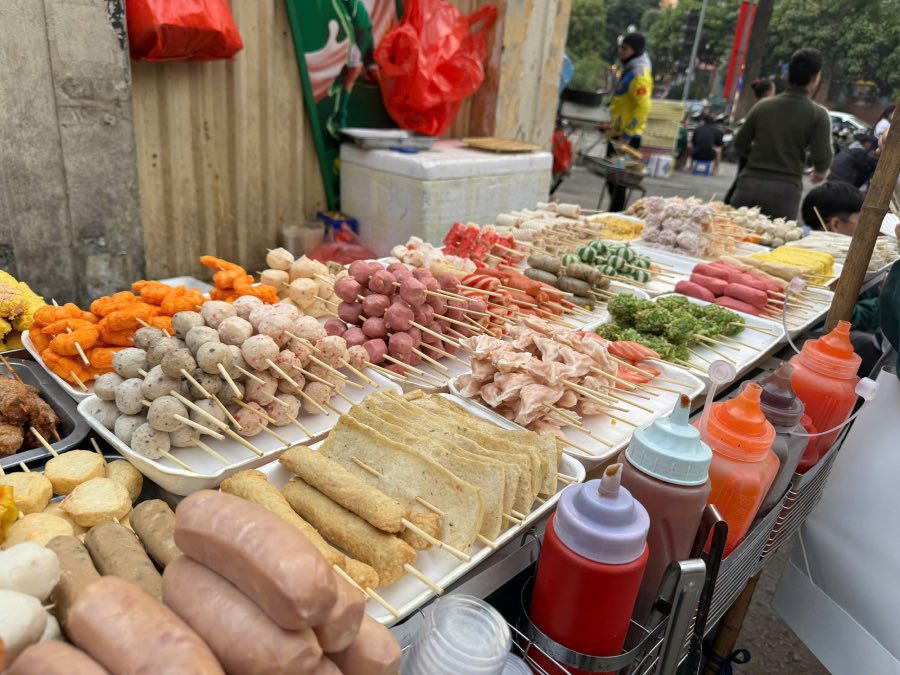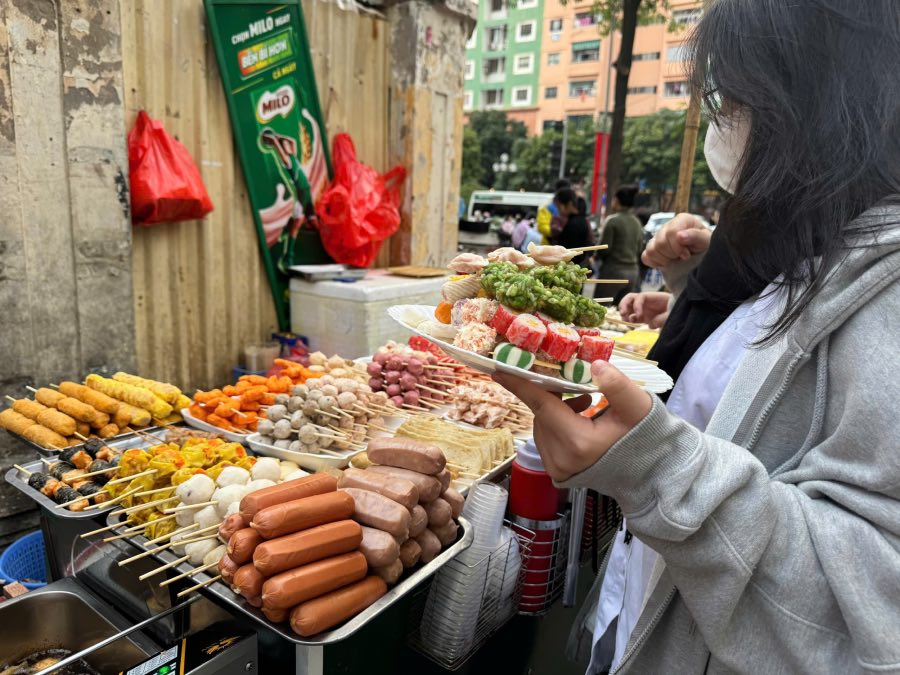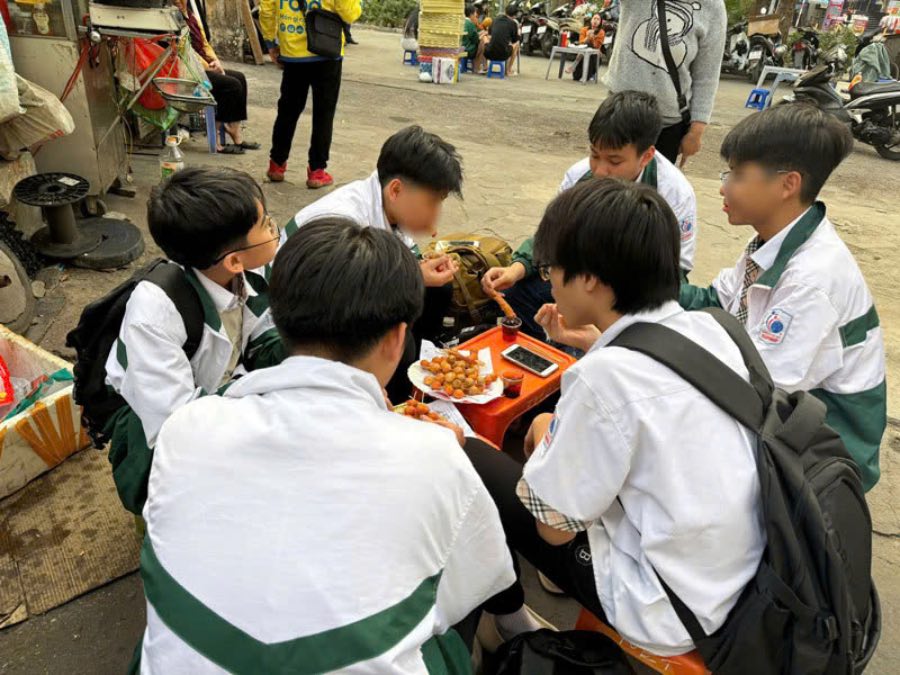Cheap street food, irresistible flavor
According to the reporter of Lao Dong Newspaper, in front of many schools, the image of carts selling skewers, sausages, nem chua… appeared everywhere, difficult to control. This favorite dish attracts a lot of students of all ages.

These items are often sold on mobile carts that do not ensure food safety and hygiene. They attract students because of their cheap prices, eye-catching colors and attractive flavors.
Ms. N.T.T - a sidewalk skewer seller on Nguyen Co Thach Street said that she sells from 4pm to midnight every day. Most of her customers are students around this area. It is known that on average, she sells 5 - 10kg of various skewers a day.

However, few people know that these attractive skewers of food have many potential serious health effects. With ingredients of unknown origin, the packaging and label do not have information about ingredients and expiration date.
Unhygienic food preparation methods and the repeated use of unlabeled oils and fats lead to the production of toxic substances such as acrylamide. This compound can cause cancer if accumulated in the body. Therefore, “dirty skewers” are a potential threat to consumers, especially students.

In addition, the food used to make skewers is not stored at the right temperature, creating conditions for bacteria to grow rapidly. Salmonella or Ecoli are types of bacteria that often appear in dirty food, easily causing acute poisoning.
How to control?
Associate Professor, Dr. Nguyen Thanh Phong - former Director of the Department of Food Safety (Ministry of Health) said that street food is an indispensable part of Vietnamese culinary culture, but also has many potential risks regarding food safety and hygiene if the origin and quality are not strictly managed.
He emphasized that since August 2024, Hanoi City has begun implementing the project "Strengthening food safety control in and around school gates in Hanoi" for educational institutions.
To minimize food safety risks, measures must be taken by individuals, schools, families, and management agencies. Parents need to clearly explain the risks of food poisoning so that their children are aware of the problem. Therefore, students should avoid buying snacks from stalls of unknown origin or unhygienic conditions.
Schools need to organize propaganda sessions on food hygiene and safety, emphasizing the risks from street food, and removing unsanitary skewer stalls near the school gate.








